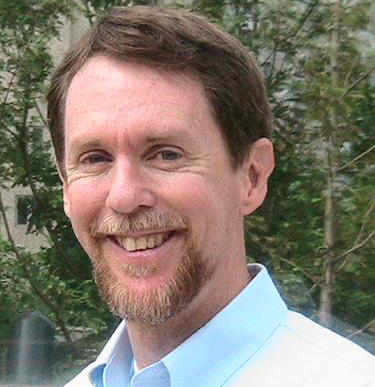Do Bank Reserves Matter?
The answer to the above question is yes, but not in the way that most people think. Most financial commentators believe that commercial banks expand their loan books by 'piggybacking' on their reserves, with something known as the "money multiplier" determining the amount of additional loans that can be made in response to an increase in bank reserves. In reality, however, there is no relationship between bank lending and bank reserves; at least, there isn't in the US.
Our statement that there is no relationship between US bank lending and US bank reserves will probably be controversial, but it can be quickly verified using some charts sourced from the St Louis Fed's database. Here we go.
The first chart shows the total of bank reserves held at the Fed from the early-1970s through to the beginning of 2008, and the second chart shows the total loans and leases of US commercial banks over the same period. There is no evidence in these charts that an increase in bank lending requires an increase in bank reserves or that bank lending is in any way dependent upon bank reserves. Notice, in particular, that total loans-and-leases rose from less than $500B in the early-70s to almost $7,000B ($7T) at the beginning of 2008 while total bank reserves FELL from about $23B to less than $10B. Also take note of the period from 1993 to 2000. During this period the total quantity of reserves held at the Fed plunged from $25B to only $5B while the total loans-and-leases of the US commercial banking system doubled from $2T to $4T.


The next two charts show the same quantities from the beginning of 2008 through to the present day. Whereas the charts presented above make the point that a huge expansion of bank lending can happen independently of bank reserves, the charts presented below make the point that a huge increase in bank reserves will not necessarily prompt an expansion of bank lending. Notice, in particular, that since August of 2008 there has been very little net change in the total amount of loans-and-leases despite a veritable 'moonshot' in bank reserves from almost nothing to more than $2T.


As an aside, we separated the post-2008 period from the pre-2008 period in the above sets of charts due to a scaling problem. To be more specific, due to the gargantuan leap in bank reserves over the past five years, everything that happened prior to 2008 looks like a flat line near zero when the pre-2008 and post-2008 periods are included on the same chart. The final chart illustrates this scaling problem.

The upshot is that if commercial banks can identify enough good lending opportunities then they will expand their loan books regardless of the change in, or the magnitude of, their reserves. By the same token, if commercial banks are unable to identify enough good lending opportunities then they will not expand their loan books regardless of how high their reserve levels happen to be. To put it more succinctly: the level of bank reserves imposes no constraint whatsoever on the amount of bank lending. An implication is that with respect to the modus operandi of the US banking system, the famous "money multiplier" is a very persistent myth. It exists in economics textbooks, but not in the real world.
If the level of aggregate bank reserves neither determines nor acts as an important influence on the amount of expansionary lending conducted by the US commercial banking industry, then why has the Fed engineered such a huge increase in US bank reserves over the past five years?
The answer is that it's a major component of an on-going bank bailout at the expense of the rest of the economy. Bank balance-sheets get strengthened because the process that adds to bank reserves also creates demand for, and therefore boosts the prices of, the assets held by the banks (the Fed's QE programs have specifically targeted asset classes to which the banks have substantial exposure). Of particular significance, for the past few years there has been a large gap between the total reported value of the US banking system's assets and the actual market value of these assets (the gap is officially sanctioned under the suspension of mark-to-market accounting rules implemented in early-2009). The Fed has been working hard to fill the gap by creating artificial demand for the assets.
The rest of the economy incurs the cost over the long haul because the process that adds to bank reserves distorts interest-rate signals (leading to mal-investment), reduces the interest income of savers, and eventually leads to a loss of purchasing power for all holders of money*.
In summary, since 2008 the Fed has been busily transferring wealth from the rest of the US economy to the banking industry. Rather than being part of an effort to promote a stronger economy, the huge increase in bank reserves is the most visible sign of this wealth transfer.
*As explained in previous TSI commentaries, when the Fed monetises assets it adds dollars one-for-one to bank reserves (not part of the money supply) and demand deposits (part of the money supply). It therefore increases the economy-wide money supply, resulting -- after an unknown time during which the effects of the monetary inflation ripple through the economy -- in money having less purchasing power.
********
Regular financial market forecasts and
analyses are provided at our web site:
http://www.speculative-investor.com/new/index.html
We aren’t offering a free trial subscription at this time,
but free samples of our work (excerpts from our
regular commentaries) can be viewed at:






 Steve Saville graduated from the
Steve Saville graduated from the 









